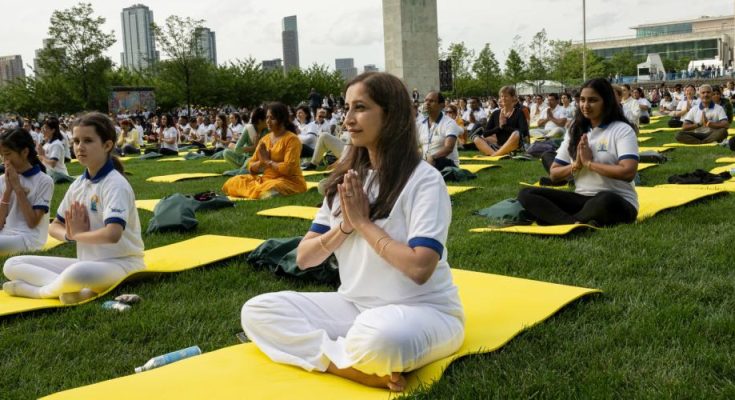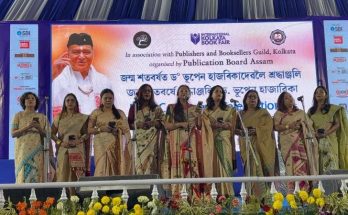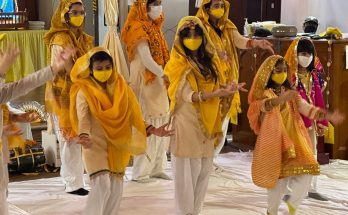#Yoga, #YogaForSelf; #YogaForSociety; #10thInternationalYogaDay; #WHOmYogaApp
This year marks the 10th International Day of Yoga with the theme “Yoga for Self and Society.”
Yoga, a transformative practice, represents the harmony of mind and body, the balance between thought and action, and the unity of restraint and fulfillment. It integrates the body, mind, spirit, and soul, offering a holistic approach to health and well-being that brings peace to our hectic lives. Its power to transform is what we celebrate on this special day.
Recognizing its universal appeal, on 11 December 2014, the United Nations proclaimed 21 June as the International Day of Yoga by resolution 69/131.
Yoga is more than a physical activity. In the words of one of its most famous practitioners, the late B. K. S. Iyengar, “Yoga cultivates the ways of maintaining a balanced attitude in day-to-day life and endows skill in the performance of one’s actions.”
Yoga was inscribed on the Representative List of the Intangible Cultural Heritage of Humanity in 2016.
The philosophy behind the ancient Indian practice of yoga has influenced various aspects of how society in India functions, whether it be in relation to areas such as health and medicine or education and the arts. Based on unifying the mind with the body and soul to allow for greater mental, spiritual and physical wellbeing, the values of yoga form a major part of the community’s ethos.
WHO in collaboration with the Government of India has launched WHO mYoga – a yoga app to help people stay active and healthy. The app is safe and secure, and does not collect any data from users. It is available for free download on Android devices, and Apple devices.
The app was developed by BeHe@lthy BeMobile, a joint initiative between the World Health Organization and the International Telecommunications Union Input from experts around the world was organized by the WHO Traditional, Complementary, and Integrative Medicine unit and Morarji Desai National Institute of Yoga (the WHO collaborating center for traditional medicine). WHO mYoga was created in response to the global Traditional Medicine Strategy 2014–2023, which aims to strengthen the quality, safety, and effectiveness of Traditional and Complementary Medicine.
The app contains a collection of videos and audio files to teach and accompany yoga practice, and is an easy-to-use and free tool for both people who are trying yoga for the first time or those who already practice yoga regularly. No special equipment is needed, and users can learn or practice for between 3 to 45 minutes, so even busy people can use it to get active.





